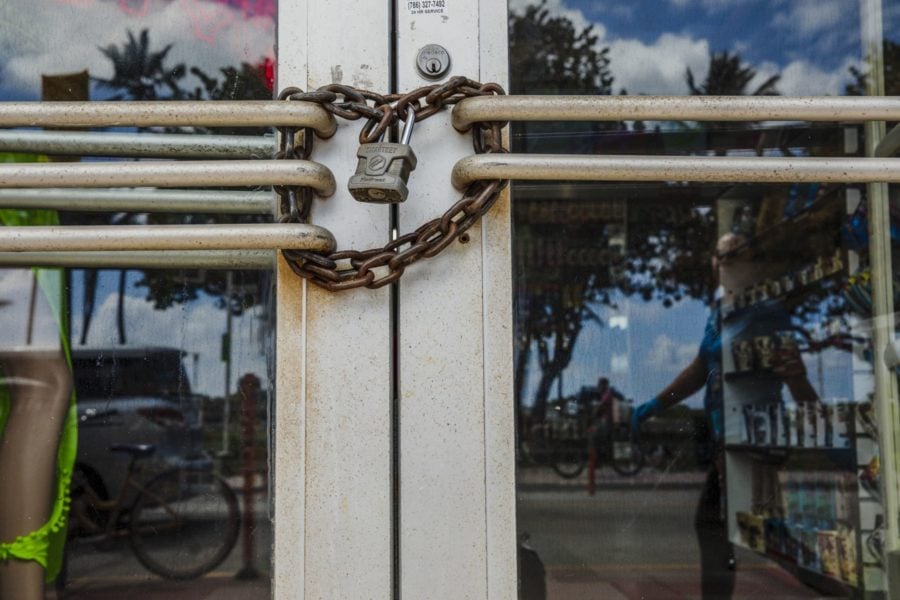

Florida, a state chock full of registered reps and financial advisers, may be facing the end of its boom times and staring at the likelihood of a recession.
That call, made last week by Wells Fargo Securities' economics group, comes as no surprise as businesses across the United States lay of millions of workers due to the fallout of the country's attempt to slow down the COVID-19 virus.
Florida is a bellwether for the brokerage and investment advice industries. According to the Financial Industry Regulatory Authority Inc., in 2018 the Sunshine State was behind only California and Texas in the number of branches of securities firms, with 10,441.
"Florida’s economy has gone from full throttle to a sudden stop in less than a month, something that is truly without modern era precedent," wrote Wells Fargo Securities senior economist Mark Vitner in a research note. "Layoffs have skyrocketed, as restaurants, hotels and amusement attractions have shut down and spring break tourists have either stayed put in their home states or returned home."
"With shutdowns and stay-at-home orders commonplace throughout the country and Florida, job growth is certain to fall hard over the next few months," Vitner wrote. "Florida’s economy tends to bounce back from recessions fairly quickly as long as real estate has not gotten grossly overbuilt in the state — which it has not."
"We are looking for this recession to be incredibly sharp but fairly short, with a recovery taking hold by the end of the year," he added.
Advisers in Florida, of course, focus on winning the business of wealthy retirees, not the waiters and waitresses and other hourly workers who have lost their jobs as restaurants and amusement parks close. But those retirees are also some of the most vulnerable to the coronavirus.
"Florida, particularly south Florida, has a large concentration of retirees from the northeast — the snowbirds," said Brian Kovack, president of Kovack Securities Inc., an independent broker-dealer based in Fort Lauderdale, Fla. "They potentially face a high concentration having the virus."
"A lot of businesses cater to those people," Kovack said. "It’s going to be pretty devastating for the service industries in Florida. South Florida is based on tourism, and that’s dead."
"Hotels and all the businesses associated with them that are affected by seasonal flows of tourism will be pretty hard hit," said Robert Anderson, a veteran adviser registered with Harbor Financial Services and based in Vero Beach, Fla. "That brings a ton of money into this state."
"There's no cars on the road and very little activity going on. People are basically sequestered to their homes," said Frank Congemi, another veteran adviser registered with Securities America Inc. and based in Deerfield Beach, Fla. "We are still doing transactions, but people are strangely silent. They are focusing on home."

Driven by robust transaction activity amid market turbulence and increased focus on billion-dollar plus targets, Echelon Partners expects another all-time high in 2025.

The looming threat of federal funding cuts to state and local governments has lawmakers weighing a levy that was phased out in 1981.

The fintech firms' new tools and integrations address pain points in overseeing investment lineups, account monitoring, and more.

Canadian stocks are on a roll in 2025 as the country prepares to name a new Prime Minister.

Carson is expanding one of its relationships in Florida while Lido Advisors adds an $870 million practice in Silicon Valley.
RIAs face rising regulatory pressure in 2025. Forward-looking firms are responding with embedded technology, not more paperwork.
As inheritances are set to reshape client portfolios and next-gen heirs demand digital-first experiences, firms are retooling their wealth tech stacks and succession models in real time.
